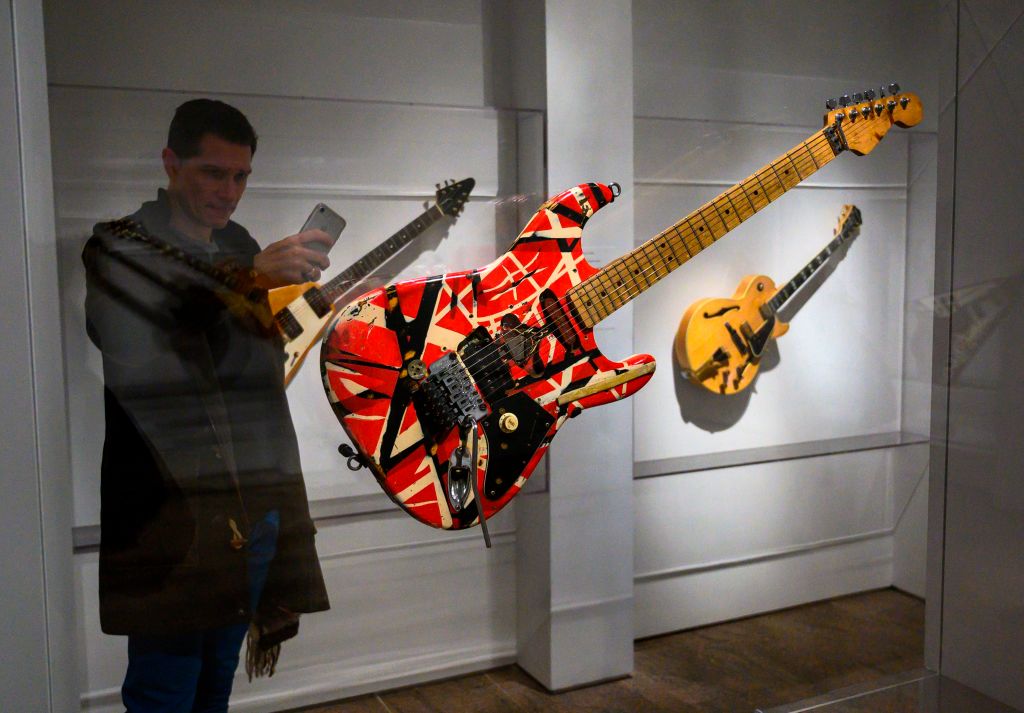
A panel of judges has ruled in favor of the Metropolitan Museum of Art in a copyright case over the institution’s use of a photograph of Eddie Van Halen.
A 1982 concert image of Van Halen shot by Florida-based photographer Lawrence Marano was used by the museum in an online catalogue for the 2019 exhibition “Play It Loud: Instruments of Rock and Roll,” which featured the late musician’s famous “Frankenstein” guitar.
Marano sued the institution for copyright infringement that same year, arguing that he never granted permission for the photograph to be used.
In July 2020, the lawsuit was dismissed by a U.S. District judge who ruled that Marano and his attorney “failed to show why the Met’s use of [the image] is not protected by the fair use exception.” Because the museum employed the photograph for educational purposes, it did not violate copyright law, according to the judge.
Marano appealed the case, but last Friday, three judges in New York’s Second Circuit court upheld the previous ruling.
“Whereas Marano’s stated purpose in creating the photo was to show ‘what Van Halen looks like in performance,’ the Met exhibition highlights the unique design of the Frankenstein guitar and its significance in the development of rock n’ roll instruments,” the judges wrote in a five-page summary order.
They further decided that the Met’s use of the image could not “in any way impair any other market for commercial use of the photo, or diminish its value.”
Installation view of “Play It Loud: Instruments of Rock & Roll,” 2019, at the Metropolitan Museum of Art. Photo: Don Emmert/AFP/Getty Images.
“The Second Circuit’s decision in the Marano case is an important one recognizing that museums, as cultural institutions, have the freedom to use photographs that are historical artifacts to enrich their presentation of art objects to the public,” Linda Steinman, an attorney for the Met, said in a statement.
“The Metropolitan Museum of Art values the contributions of all artists, including photographers, and also appreciates that fair use is a key tool for the visual arts community.”
“The mission of the Met and all museums,” Steinman continued, “is to provide the public with access to art—and this important decision protects, indeed strengthens, this important societal role.”
Marano’s attorney did not respond to Artnet News’s request for comment.
In both decisions, the ruling judges looked to the 2006 Bill Graham Archives v. Dorling Kindersley Ltd., case for precedent, Courthouse News points out.
In that case, which had to do with the republication of decades-old concert posters in a coffee table book about the Grateful Dead, the Second Circuit court ruled that the publisher reprinted the posters as “recognizable representation” of the band’s concerts, saying the case fell under fair use doctrine.